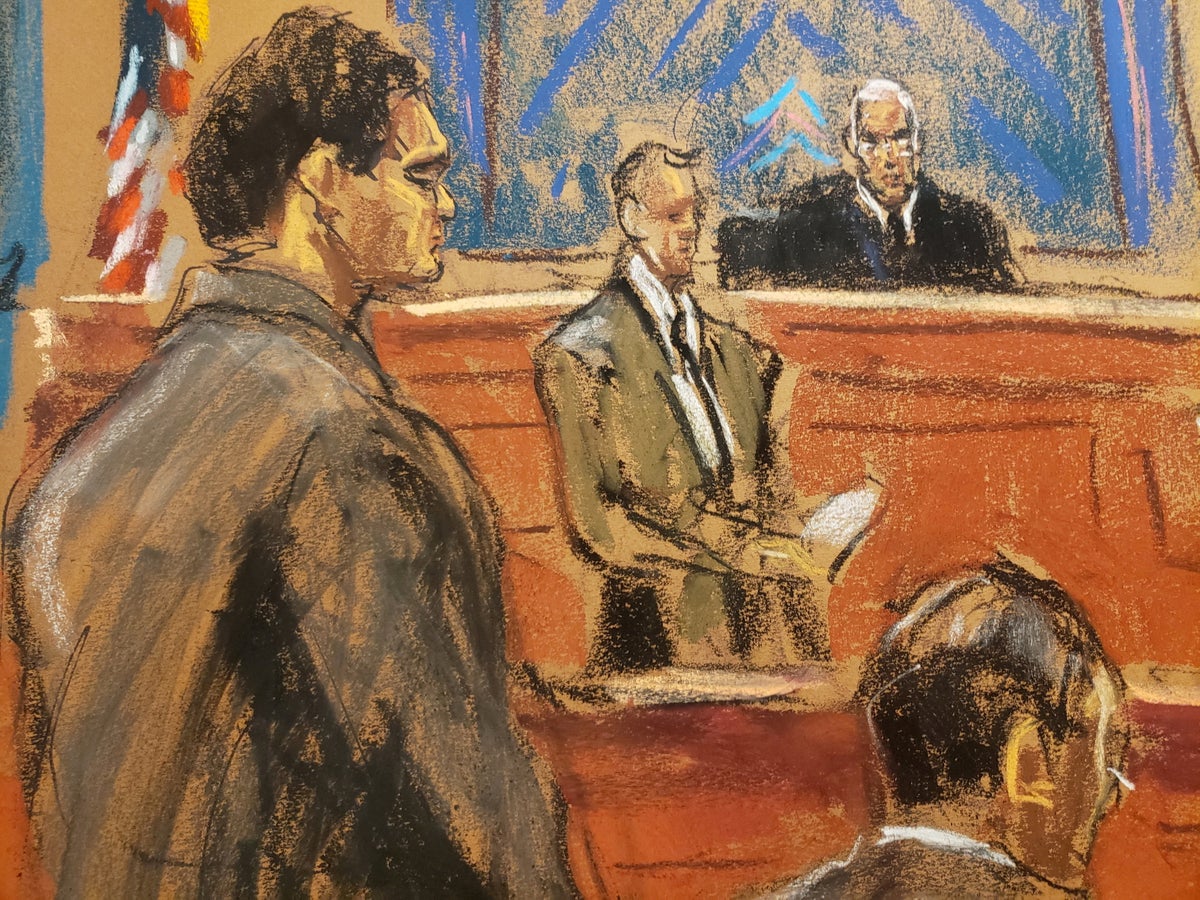
FTX founder Sam Bankman-Fried was guilty of defrauding customers on his popular cryptocurrency exchange out of billions of dollars, a federal jury concluded on Thursday.
After four hours of deliberation, the 12-member Manhattan panel convicted Bankman-Fried, 31, of two counts of fraud and five counts of conspiracy, Reuters reports.
The executive had pleaded not guilty to the charges against him.
The crypto billionaire was once worth $26bn, and his rapid fall is one of the highest-profile financial scandals in modern US history.
Federal prosecutors accused the executive, once a darling of the business press, of taking FTX customers’ money and using it to pay off the debts of Alameda Research, a related cryptocurrency hedge fund Bankman-Fried founded in 2017, as well as making luxury real estate purchases and political donations.
Sam Bankman-Fried in court— (REUTERS)
The government’s star witness was Caroline Ellison, the former CEO of Alameda and Bankman-Fried’s ex-girlfriend.
She testified that the crypto kingpin, known colloquially as “SBF,” directed her multiple times to pull money from FTX customer accounts and use it for outside purposes.
Others who offered testimony included FTX engineer Nishad Singh and FTX co-founder Gary Wang.
SBF’s conviction could carry a maximum sentence of 110 years in prison.
The former executive’s sentencing is set for March of 2024.
He is widely expected to appeal the verdict.
The Independent has contacted Bankman-Fried’s lawyer for comment.
After the verdict US attorney Damian Williams said: “Sam Bankman-Fried perpetrated one of the biggest financial frauds in American history. The cryptocurrency industry might be new. The players, like Sam Bankman-Fried, might be new. But this kind of corruption is as old as time.”
The trial saw the one-time crypto golden boy’s private opinions about the industry aired out before jurors and the national media.
On the stand, Mr Bankman-Fried, who often framed himself as an advocate for honesty and sensible regulation in the industry, was asked about messages in which he once said, “F*** regulators.”
He replied to questions about the exchange by saying he “said that once”.
Elsewhere, he admitted to describing parts of the cryptocurrency community as “dumb motherf***ers,” which he insisted in questioning only applied to a “subset” of the ecosystem.
For his part, Bankman-Fried’s defence argued he was not a greedy villain but rather a startup founder who failed to control his fast-moving, interrelated business enterprises.
“What we’ve been trying to present to you, and I’ll discuss today, is more of a real-world perspective,” attorney Mark Cohen told jurors. “And in the real world, unlike the movie world, things can get messy.”
“Good faith is a complete defence to all the charges in the case,” he added in closing remarks.
There was drama even before the monthlong case.
Before going on trial, the crypto executive was arrested at a $40m luxury apartment complex in the Bahamas that served as company offices.
The FTX founder was then extradited to the US and held under house arrest on $250m bail at the Palo Alto home of his parents, both prominent faculty members at Stanford University’s prestigious law school.
His bail was revoked in August after prosecutors argued that he had harassed Ms Ellison, tried to interfere with witnesses, and given documents to reporters.
Both FTX and Alameda went bankrupt in late 2022 amid a run on customer deposits, and their assets are currently being sold off and reapportioned.







